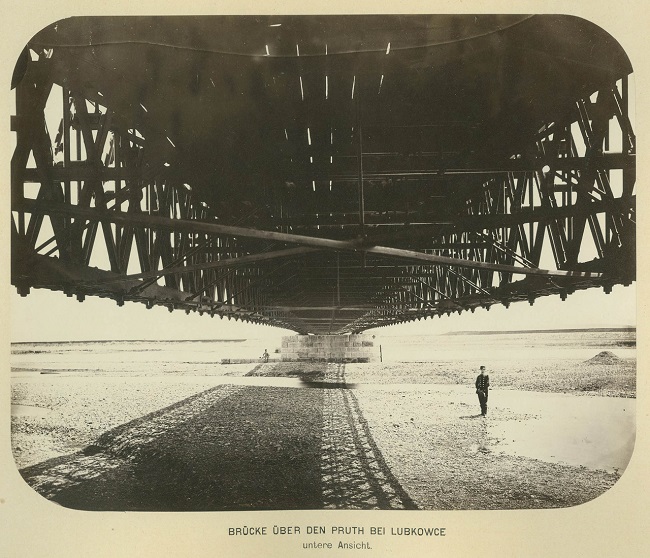

Запрошуємо зголошуватись до участі у міжнародній конференції "Між Києвом і Віднем: історії людей, ідей і об’єктів в обігу та русі"
Відень, 4-7 грудня 2019 р.
Український інститут (Київ), Інститут наук про людину (Institut für die Wissenschaften vom Menschen) (Відень) і Центр міської історії (Львів) запрошують подавати заявки на участь у конференції, яка відбудеться у Відні 4-7 грудня 2019 р. Конференція організовується у співпраці з Центром польських та європейських студій ім. Єжи Гедройця НаУКМА (Київ) і Центрально-Європейським університетом (Будапешт/Відень).
Ця багатодисциплінарна конференція відбудеться у рамках "Двостороннього року культури Австрія-Україна 2019" та прагне дослідити сучасну та історичну динаміку, яка сформувала Австрію, Україну і простір поміж ними та довкола, крізь призму обігу і руху.
Ще якихось десять років тому Україну називали "лабораторією транснаціональної історії", розширюючи наше розуміння того, що можна включити в історію держави, ставлячи Україну у ширший європейський контекст. Конференція має на меті вибудовувати лінію обговорень на основі цієї концепції, розширити оптику та включити регіон, яким колись правили імперії Габсбургів, Романових та Османів. Поглянувши ширше на регіон, який сьогодні є частинами багатьох національних держав у межах кордонів ЄС і поза ними – від Польщі до Албанії, від Італії до Туреччини, від Росії до Румунії, і звісно, від України до Австрії – ми отримуємо нове розуміння важливих тем, які сформували сучасну історію цього регіону, Європи і світу.
Визнаючи постійно змінний, плинний і динамічний характер досліджуваного простору, конференція робить наголос на обігу, рухові та взаємодії, чи то упродовж певного періоду, чи в певний момент. Ми прагнемо надати майданчик, де розглянемо людей, які переміщалися в межах, за межі цього регіону і до нього, аналізуючи чинники, якими вони керувалися, і наслідки їх переїздів; дослідимо потік ідей, які тут висловлювалися і приводилися в рух та резонували у прожитий досвід, як в регіоні, так поза ним; а також поставимо питання, про те, як обіг матеріальних об’єктів, товарів і ресурсів вплинув на суспільства і довкілля, формуючи відносини і ієрархії між місцями і людьми.
Запрошуємо дослідників подавати свої заявки, які розглядають питання, пов’язані з поняттями обігу і руху в регіоні, який загально окреслюємо для цієї конференції поняттям "між Києвом і Віднем", зупинившись на такому перелікові тематичних напрямків, які включають, але не обмежуються таким:
Більше інформації, у тому числі і розширений опис програми, можна знайти на www.iwm.at/between-kyiv-and-vienna.
Для зголошення
Подавайте свої заявки, які мають включати назву, резюме доповіді (до 250 слів) та резюме (CV) на //austriaukraineconf2019@iwm.at/
">austriaukraineconf2019@iwm.at до 5 серпня 2019 р.
Заохочуємо подання від докторантів (аспірантів) на завершальному етапі дисертаційних проектів, молодих науковців та досвідчених дослідників.
Важливі дати
Термін подачі заявок: 5 серпня 2019 р.
Повідомлення про прийом: до 1 вересня 2019 р.
Тексти доповідей приймаються до: 15 листопада 2019 р.
Практична інформація
Робоча мова конференції – англійська. Тексти доповідей (3000-4000 слів) очікуються до 15 листопада 2019 р. Організатори конференцій покривають транспортні витрати і проживання; частково буде забезпечено харчування.
Наглядова рада
Олена Бетлій (НУ "Києво-Могилянська академія")
Гаральд Біндер (Центр міської історії)
Алісон Франк Джонсон (Гарвардський університет)
Тімоті Снайдер (Єльський університет/IWM)
Балаш Тренчений (Центрально-Європейський університет)
Володимир Шейко (Український інститут)
Посол Олександр Щерба (Посольство України у Австрії, Відень)
Оргкомітет
Олександр Виноградов (Український інститут)
Софія Дяк (Центр міської історії)
Катерін Янгер (IWM)
Логістика
Лідія Акришора (IWM)
Мар’яна Мазурак (Центр міської історії)
Ілюстрація: Міст над рікою Прут біля Любківців, вид знизу / Цифрові колекції бібліотек Південного методистського університету

Travel grants available to attend conference on archives outside of the former Soviet Union related to the Holodomor
The Holodomor Research and Education Consortium (HREC) announces the availability of stipends to support attendance by early career scholars at the conference Documenting the Famine of 1932-1933 in Ukraine: Archival Collections on the Holodomor outside the former Soviet Union, to be held at the University of Alberta on November 1-2, 2019. A conference concept and preliminary program may be found on the HREC website, www.holodomor.ca